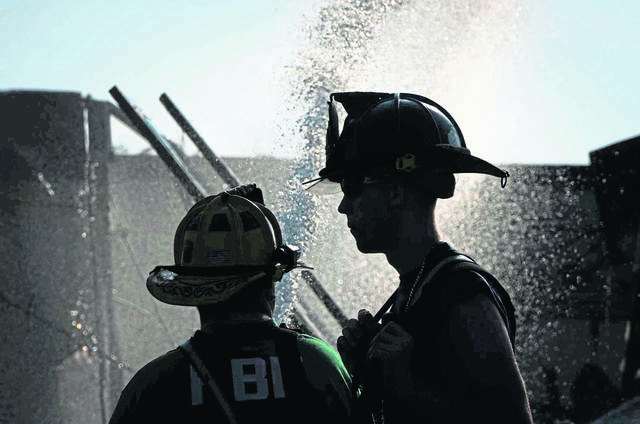On a normal day, Pennsylvanians don’t realize how much they rely on an almost invisible wall of people standing between them and disaster.
Some of the disasters are metaphorical. A minor car crash can snarl traffic but isn’t critical to more than the insurance deductible. But others are literal, like flash floods and sinkholes, four-alarm fires and mass casualty events.
That invisible wall is fire departments, rescue crews and emergency medical service companies that don’t stay at home when a siren sounds. They respond — first and fast.
While the state has been locked down in the coronavirus pandemic, practicing social distancing and staying at home whenever possible, emergency responders have not had that luxury. They have continued to step up while dealing with increased risk and short-supplied equipment.
And the state has recognized that. Those companies are now able to apply for grants to pay for things like utilities and repairs, buying protective gear like masks and gloves, cleaning and disinfecting, all to stop the spread of covid-19.
Pennsylvania is putting $44 million out there for fire companies and another $6 million for EMS.
“Increased operational tempo, and an inability to raise funds through community events have hit these organizations hard,” said Bruce Trego, fire commissioner. “The financial lifeline these grants provide will help hundreds of companies keep their lights on.”
That is an important step because the services provided by these largely volunteer groups is needed on a good day. In a pandemic, it is vital.
We cannot continue to undervalue and undersupport these critical services. These grants shine a light on specifically why.
The state recognized that in just five months, those companies were stressed by at least $50 million, and that’s probably lowballing the impact.
Emergency services are the agencies that have the most immediately felt impact on the people they serve. They pull people from burning buildings and beat life back into chests of cardiac patients. And they do it funded by bingo games and spaghetti dinners — the kind of thing that is hard to do in a quarantine.
Pennsylvania needs to show how important these services are by valuing them for what they truly are — the invisible wall that stands between every one of us and disaster.








